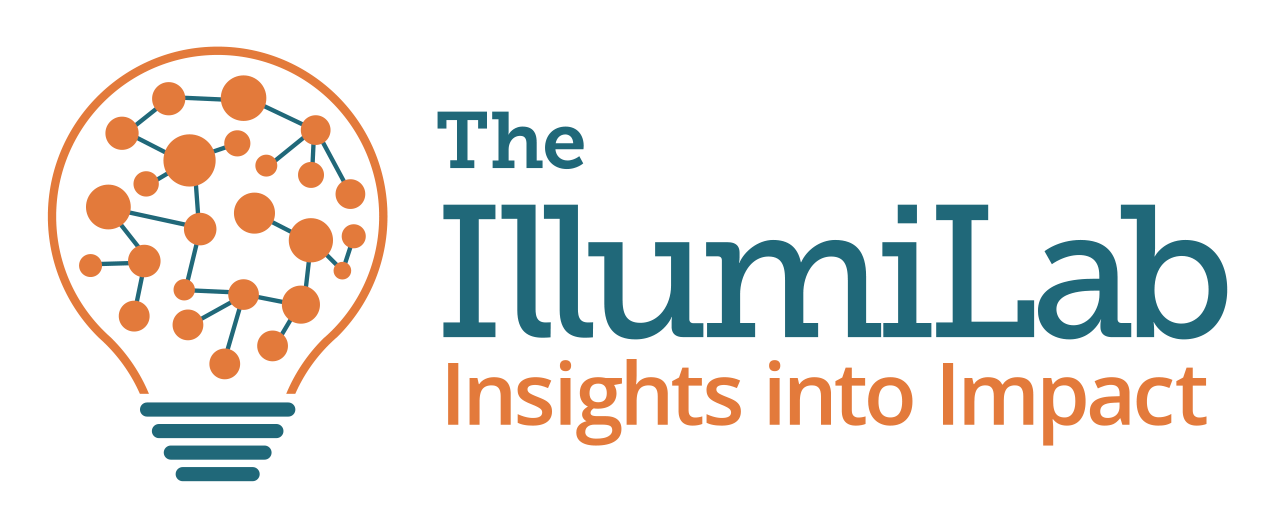Two years ago in January, I wrote a blog called 6 Tips for Setting Meaningful Goals in which I admitted often falling short of following my own advice. All our work at The IllumiLab – whether it’s evaluation, performance management, planning, data management, quality improvement, or process management – is about helping organizations articulate and align their why, what, and how in order to increase their impact. We do this by asking and answering intuitive questions and using data of all sorts. This past December, I sat down and used the same questions and tools we’ve developed for our clients in order to develop The IllumiLab’s plans and goals for 2020. Here’s what I learned along the way:
Get Started
Year-end reflection and planning for next year can be daunting, especially if your organization doesn’t typically do this. If you wait for an obvious, ideal, or logical starting point, you might never get to it. Start brainstorming your questions, ideas, and pain points. You can prioritize and organize them later (check out this post for suggestions). Ready, set, brain dump!
Plans Serve You; You Don’t Serve Them
Like nonprofits, I’ve had “experts” tell me what kinds of plans my firm needs in order to be focused and successful. I dug back through my files and realized I had several half-written, half-implemented, and entirely forgotten plans – business plans, strategic plans, marketing plans, etc. I had done what I’d been advised to do, but none of it was what I needed or could use. What a waste! Similarly, nonprofits are all too familiar with the almighty Strategy Plan. I’ve seen organizations spend thousands of dollars and hundreds of hours on a cookie-cutter process that results in a boiler-plan plan that sits on a shelf and collects dust.
I found that the prescribed templates didn’t fit my thought process, address my objectives, or provide me with the clarity and structure I needed to make progress. So, I made my own. I asked myself, “What do I want to capture and articulate? What commitments do I want to document? How can/should I track progress? What would help me stay focused and productive?” And I designed a tool that would support me. Don’t let the tail wag the dog!
Our plans and tools should serve us; we shouldn’t be serving them! The plans are not the product. They are the tools that serve our learning and improvement, support our alignment, and hold us accountable to our missions.
You’re Never Done
Each planning process reveals gaps and blind spots. You realize that you could have made better decisions, set goals more confidently, and budgeted more accurately if you’d had additional data, captured insights and learning along the way, or involved other perspectives. Part of my action plan for 2020 focuses on developing the tools and processes I need to better capture learning and collect more data to better inform my planning at the end of this year. I’m planning to plan.
It’s Worth It
The time you spend reflecting and learning can feel like a sacrifice but it’s really an investment. It can create energy and momentum that no pep-talk can. Investing in reflection means you are capturing and leveraging your lessons learned, so you aren’t wasting any experience or insight or unnecessarily repeating any mistakes.
The Bottom Line
Do whatever you need to do to make your planning process meaningful and useful.

